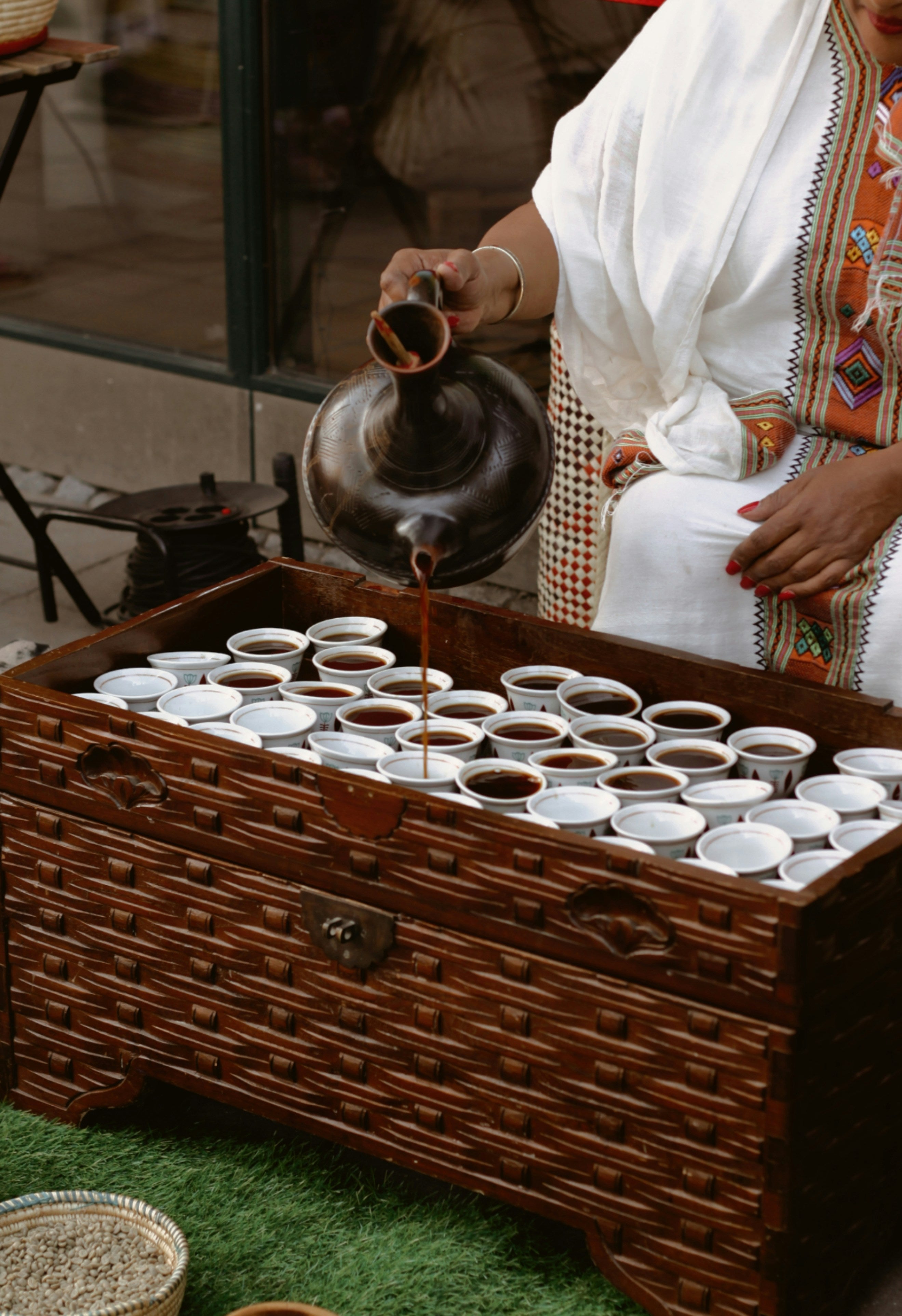
Ethiopian Coffee History:
Ethiopia, the birthplace of coffee, has a centuries-old relationship with this cherished beverage. Coffee's origins trace back to the ancient Kingdom of Kaffa, a region believed to be the source of the word "coffee." Legend has it that a goat herder named Kaldi made a serendipitous discovery when he noticed his goats became unusually energetic after munching on the red berries of a particular shrub.
Intrigued, Kaldi decided to sample the berries himself and experienced a newfound vitality. He shared his findings with local monks, who, recognizing the stimulating potential of these berries, began using them to create a revitalizing drink. This marked the inception of coffee as we know it.
The Ethiopian Coffee Ceremony:
Embedded in Ethiopian culture is the centuries-old coffee ceremony known as "Bunna." More than just a method of coffee preparation, it symbolizes hospitality, community, and cultural identity. Typically held in Ethiopian households, cafes, and gatherings, the ceremony unfolds through a choreographed process of roasting, grinding, and brewing coffee beans. Fragrant incense often accompanies this ritual, creating a sensory experience that engages all the senses.
The Ethiopian coffee ceremony is more than a simple act of making coffee; it's a celebration of tradition, fostering connections and bonds among participants. With laughter and stories shared, it stands as a testament to Ethiopia's reverence for its coffee heritage. This cultural experience not only highlights the delicious brew but also showcases the warmth and hospitality that Ethiopian people extend to their guests.
Today, Ethiopia remains a renowned coffee-producing country, known for its unique coffee varieties, including the famous Yirgacheffe and Sidamo beans, which continue to captivate coffee enthusiasts worldwide. The Ethiopian coffee ceremony, steeped in history and communal significance, serves as a living reminder of coffee's enduring legacy in this remarkable nation.
